Rudeboy Criticizes APC's Joe Igbokwe Over Remarks About P-Square Split
Paul Okoye, known to fans as Rudeboy and formerly a member of the musical duo P-Square, has recently taken a strong stand against comments made by Joe Igbokwe, a chieftain of the All Progressives Congress (APC). The controversy arose after Igbokwe voiced his opinions on the long-standing rift between Paul and his twin brother Peter Okoye.
Igbokwe took to Facebook to air his grievances, stating that he was disappointed in the twin brothers' inability to set aside their differences. His comments drew intense scrutiny as he went as far as to question the brothers' personal lives, professional decisions, and management of their relationships. Igbokwe's remark that the brothers' situation is 'success without brains, education without character' hit a particularly raw nerve.
Rudeboy, known for his forthrightness, did not take the comments lightly. He responded quickly and harshly through his Instagram story, dubbing Igbokwe 'Elder wey mumu,' a term which translates roughly to 'a foolish elder.' Rudeboy went on to criticize Igbokwe for focusing on his family issues instead of addressing the pressing problems facing Nigeria. 'Focus on the country wey you put mouth scatter. People are hungry,' Rudeboy wrote, highlighting the rising discontent among Nigerians over the country's socio-economic issues.
A Dispute that Captured the Nation
The Okoye brothers, once celebrated for their musical contributions as P-Square, shocked their fans and the Nigerian entertainment industry when they went their separate ways in 2017. The split came after years of rumored disagreements and conflicts, both personal and professional. Despite various attempts by fans and family members to mediate between the duo, a full reconciliation has remained elusive.
Igbokwe's comments align with sentiments held by many who have long hoped for a reunion of the iconic group. However, his public critique was perceived by many as crossing a personal boundary. Social media platforms buzzed with mixed reactions, some supporting Igbokwe's stance while others defended Rudeboy's right to privacy and autonomy.
The Role of Family and Elders in Resolving Conflicts
Igbokwe's question about the role of family elders and close relatives in resolving the Okoye brothers' feud also hit home. He mentioned their parents, siblings, and even an individual named Nnaochie, questioning whether these family members had played any part in trying to mend the relationship. This raises deeper questions about the influence and capacity of family intervention in personal disputes, especially when those conflicts have public and professional ramifications.
The pressure on public figures to resolve personal issues in the public eye is intense, and in the case of the Okoyes, it adds an additional layer of complexity. The brothers have had to navigate their family dynamics while maintaining their individual careers and public personas. Igbokwe's comments thus serve as a reminder of the double-edged sword of fame, where personal struggles become fodder for public scrutiny and debate.
Public and Professional Lives in the Spotlight
Rudeboy's reproof of Igbokwe underscores the dichotomy between his public persona and private life. Known for his music, he would likely prefer the emphasis to remain on his talent and achievements rather than on his familial relationships. The same could be said for his brother Peter, who also continues to carve out his path in the music industry.
The expectations laid upon the Okoye brothers are symptomatic of a broader issue faced by celebrities worldwide. As public figures, they have their lives dissected and critiqued in ways that can be both invasive and unfair. The tension between maintaining a private life while fulfilling the demands of a public career is a balancing act that requires tremendous skill and fortitude.
A Call for Empathy and Perspective
While Joe Igbokwe's comments were undoubtedly candid, they also lacked empathy. Publicly demanding the reconciliation of a personal and complex relationship disregards the nuanced and intimate nature of such issues. It is a potent reminder that celebrities, despite their fame and success, are human beings with feelings, struggles, and personal spaces that deserve respect.
As observers, it behooves us to afford these public figures the same understanding and compassion that we would wish for ourselves. The Okoye brothers' split is undoubtedly a matter of great public interest, but it is also a deeply personal issue that requires space and time to resolve, if ever.
Lessons in Personal and Professional Boundaries
The heated exchange between Rudeboy and Joe Igbokwe also serves as a broader lesson in respecting personal and professional boundaries. Public figures face unique challenges that blend their personal lives with their professional personas. For those in the public eye, finding harmony between the two can be particularly arduous.
Critics like Igbokwe, however well-intentioned, must tread carefully in their public commentary. Constructive criticism can inspire positive change, but it must be delivered with sensitivity and respect for the individuals and their circumstances. Utilizing one's platform to air grievances about personal matters publicly can often do more harm than good.
Looking Forward
For the Okoye brothers, the journey forward remains uncertain. Whether they choose to reconcile or continue on separate paths, the decision is ultimately theirs to make. Fans will undoubtedly continue to watch closely, hoping for a resolution but also respecting the brothers' autonomy in making that decision.
The public's role in such situations should be to offer support rather than judgment, understanding rather than criticism. For Rudeboy and Peter, their contributions to music and culture are what truly define them, and those achievements should remain at the forefront of public discourse.
As for Joe Igbokwe, his comments reflect a sentiment that many share but must be tempered with the realization that personal issues are best resolved personally. His focus, as Rudeboy aptly pointed out, might be better directed at the broader issues affecting the country. Nigeria, like many nations, faces numerous challenges that require the attention and efforts of its leaders.
In the end, personal conflicts, no matter how public, are just that—personal. They are best handled with care, empathy, and respect for those involved. As the saga of the Okoye brothers continues to unfold, let us remember the human element behind the headlines and offer them the grace and space to find their way.

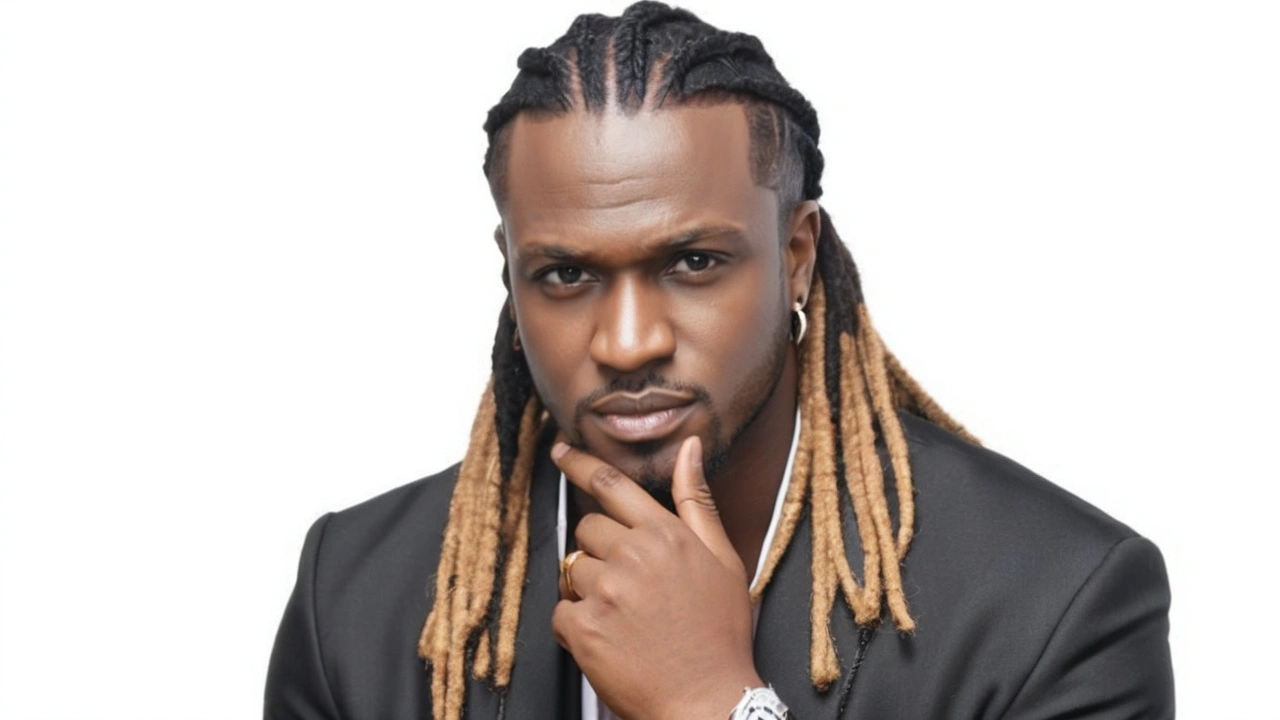
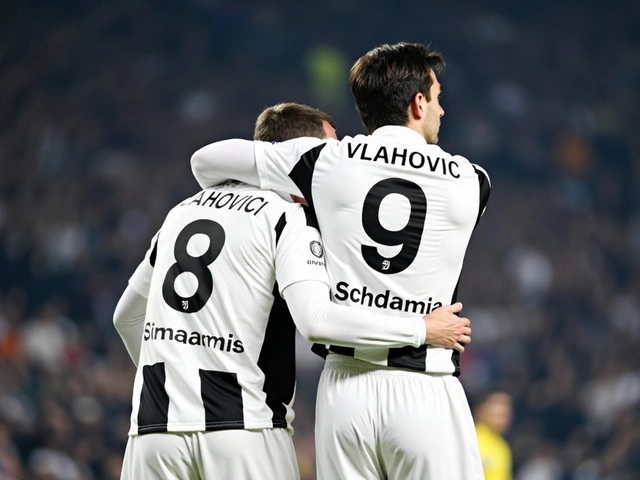
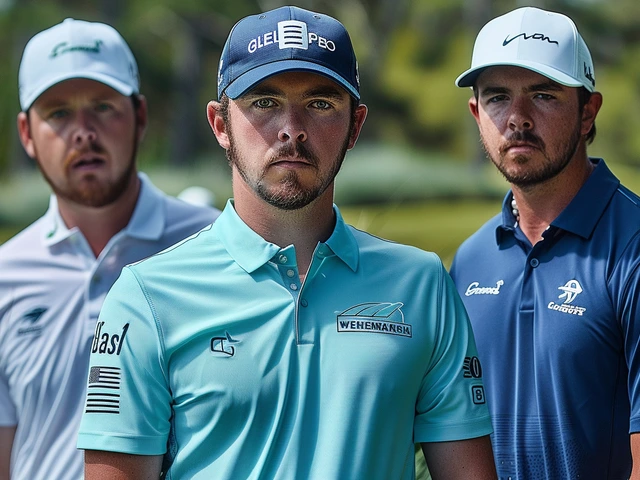
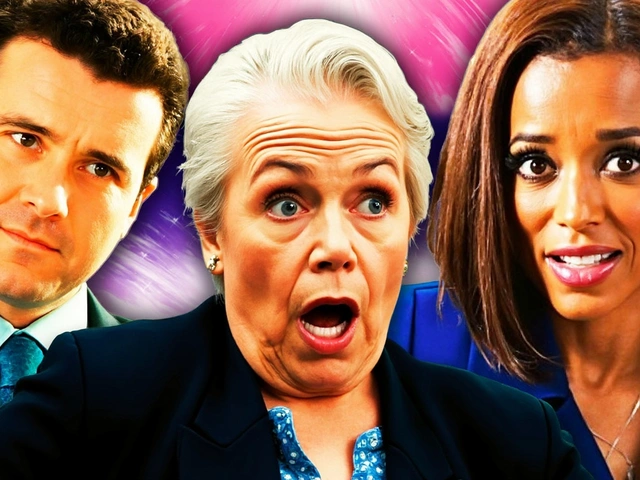

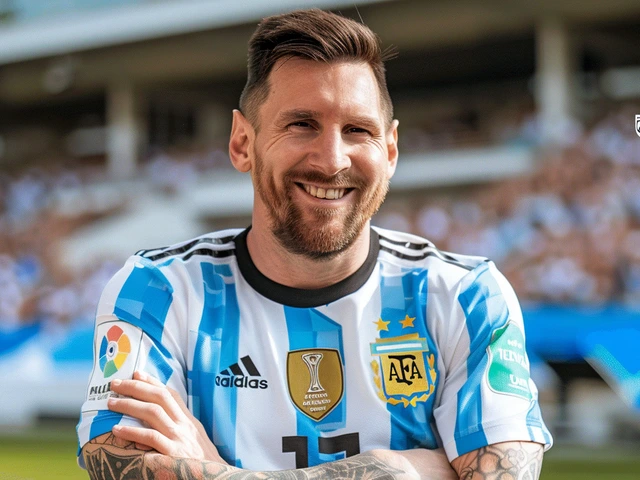
Michelle Roque
August 5, 2024 AT 21:34i cant even with all this drama.
Killian Lecrut
August 15, 2024 AT 17:20Wow, another political player trying to dictate what celebrity relationships should look like. It's almost adorable how they think they have any insight into personal drama. Meanwhile, the real issues in the country keep getting ignored. Keep the eye‑rolls coming, folks, because this is peak superstardom gossip.
Subi Sambi
August 25, 2024 AT 13:05Listen, these so‑called "politicians" love to stick their noses where they don't belong. They pretend to be moral arbiters while the nation starves. The Okoye brothers' split is a private matter, not a government agenda. It's insulting that anyone would use it to score political points. If you want to talk about accountability, start with the leaders actually responsible for economic hardship.
Joshua Rainey
September 4, 2024 AT 08:51Oh great another drama‑queen trying to play savior, because that’s what the world needs-more melodrama. They pretend they’re fixing the country while gossiping about twins. Sure, let’s focus on sibling feuds all day, that’s definitely the solution to inflation. Nothing says “I care” like a social media tirade about personal lives. Wake up.
Gail Robb
September 14, 2024 AT 04:37The moment a politician starts dissecting family issues, it’s a clear sign they’ve run out of real policies. It’s absurd to think that a personal disagreement can be weaponized for electoral gain. Their rhetoric reduces complex human relationships to campaign fodder. If they truly cared about the nation's hunger, they’d stop meddling in private lives. This is nothing but a diversion.
Pradeep Chabdal
September 24, 2024 AT 00:23One must appreciate the audacity of those who presume to resolve artistic disputes from a legislative podium. It borders on the pretentious when governance is conflated with cultural arbitration. While the conversation is interesting, let’s remain mindful of the boundaries between public duty and personal matters. The nuances of creative partnerships deserve more thoughtful discourse.
andy heri
October 3, 2024 AT 20:09We all know how hard it is to balance personal grievances with public expectations. It’s important to support the artists while also urging leaders to stay focused on real problems. Let’s keep the conversation constructive and not let this become another distraction. Keep standing up for what matters, both in music and in policy.
Jeremy Perlman
October 13, 2024 AT 15:55Honestly, the only thing more baffling than this debate is the complete lack of factual substance-, and the fact that political figures are still trying to make headlines out of family drama-, is a testament to the depth of their disconnect-, from real issues like unemployment and inflation.
George Georgakopoulos
October 23, 2024 AT 11:41Let’s be real, anyone who thinks a politician’s comment can magically reunite a duo is either naïve or part of a larger narrative. There are hidden agendas, media spin cycles, and power plays at work that the public never sees. We can’t ignore the fact that these statements often serve as distractions. Stay skeptical.
Abirami Nagarajan
November 2, 2024 AT 06:27I feel for the brothers, it must be difficult. At the same time, we should let them decide on their own timeline. Everyone deserves privacy.
shefali pace
November 12, 2024 AT 02:13It’s inspiring to see artists stand up for themselves with such confidence! Even though the drama is exhausting, it reminds us that we’re all human. Let’s hope this sparks more conversations about empathy. The world could use a little more compassion, especially from those in power. Keep the love alive.
sachin p
November 21, 2024 AT 21:58What’s the real impact of this on their fans? Do you think it changes how people view their music? It’s an interesting cultural moment.
sarthak malik
December 1, 2024 AT 17:44From a professional standpoint, it’s essential to separate an artist’s personal life from their creative output. The Okoye brothers have built a legacy that stands on its own, regardless of any family matters. Fans should continue to support the music they love while respecting the brothers’ autonomy. It’s a balanced approach that benefits everyone.
Nasrin Saning
December 11, 2024 AT 13:30Every story has many sides and we should honor each perspective. It’s not about picking sides but fostering understanding. Peace and respect go a long way.
gaganpreet singh
December 21, 2024 AT 09:16The phenomenon of public figures having their private disputes thrust into the spotlight is not a new occurrence, yet each instance seems to amplify the collective yearning for sensationalism within the media landscape. While the Okoye brothers’ split initially sparked curiosity rooted in their artistic contributions, the subsequent commentary by political actors has transformed what could have been a personal reconciliation process into a broader sociopolitical debate. Critics argue that such interventions divert attention from systemic challenges, whereas supporters claim that any discourse surrounding high‑profile individuals inevitably raises awareness of underlying societal tensions. In any case, the very act of politicizing a familial rift illustrates a pattern in which governance and entertainment increasingly intersect, blurring the lines of appropriate discourse. Moreover, the choice of language used by officials-terms that convey moral judgment-reflects a deeper desire to assert authority over cultural narratives. Observers note that when politicians adopt a paternalistic tone, they risk alienating constituencies that value artistic independence. Conversely, the artists themselves wield significant influence, and their rebuttals often serve as a mirror to public sentiment regarding governance priorities. The rhetorical exchange between Rudeboy and the APC chieftain underscores a tension between freedom of expression and the perceived responsibilities of public office. It also raises the question of whether the electorate expects political leaders to address only macro‑economic policies or if they also anticipate moral guidance on personal matters. While the latter may appear intrusive, it is not without precedent; historical examples abound where leaders have weighed in on cultural disputes to shape national identity. Yet, such interventions can be counterproductive if they are perceived as overreach, especially in a climate where citizens are already frustrated by economic hardships. In this context, the focus on celebrity drama may be interpreted as a tactical distraction from pressing concerns like inflation and unemployment. Nonetheless, the ripple effect of this debate extends beyond the immediate parties involved, influencing public discourse on privacy, media ethics, and the role of leadership in personal life matters. Ultimately, regardless of one's stance on the appropriateness of political commentary, the episode highlights the complex interplay between fame, governance, and societal expectations. It serves as a case study for scholars examining the impact of public scrutiny on private relationships and the limits of political speech in a modern democratic environment. As the narrative evolves, it will be instructive to observe whether the conversation shifts back to substantive policy issues or remains entangled in the personal saga of the Okoye brothers.
Urmil Pathak
December 31, 2024 AT 05:02Is there any evidence that the politician’s remarks actually help the brothers? Just wondering.
Neha Godambe
January 10, 2025 AT 00:48Your point about diversion tactics is spot on; the political elite often masquerade concern for personal dramas as moral leadership, all while sidestepping substantive policy failures. It's infuriating how quickly they pivot to scandal when the real agenda demands attention.
rupesh kantaria
January 19, 2025 AT 20:34In reflecting upon this exchange, one might consider the philosophical implications of conflating public duty with private admonition; such a conflation risks eroding the very boundaries that safeguard individual autonomy within a democratic ethos.